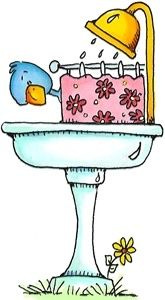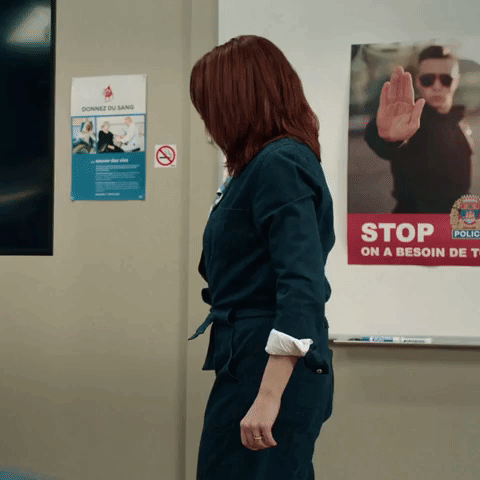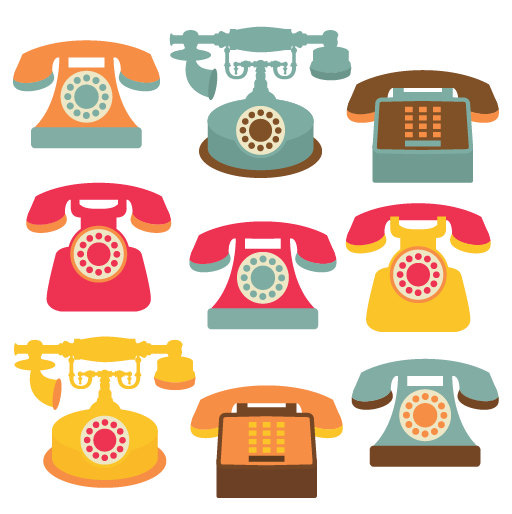THE HAPPINESS FACTOR
What we can learn about happiness from the Finns, multiple studies, and Bobi-the World's Oldest Dog!
Hiya Friends!
First off, I want to thank all of you who have generously offered to pledge $ for my musings here on Substack. It’s so very kind and you’ve given me such a lift. I don’t currently have paid subscriptions turned on here because I like having a low stakes place to write. I worry that once there’s a dollar amount attached to my ramblings about mercury retrograde and donuts, it might make some readers question the value.
Full disclosure; I never thought I’d be able to make money as a writer, and every time a payment shows up, I’m awestruck. I used to take a photo of each check as a keepsake to remind myself that someone found my words worthy of compensation. Now I just interrupt whatever Jared is doing and proudly slide my $400 payment in front of him as if I’ve single handedly solved all our money woes. TADA!
I’m sure this is all tied to insecurities about self worth and a complicated relationship with money that began as a kid watching my single mom struggle to make end’s meet. I still keep an emergency sum in a checking account where it earns zero interest, much to Jared’s dismay.
Perhaps one day I’ll turn on paid subscriptions and you might wonder, “What the hell is this random charge on my credit card?” Until then, I hope some of what I write here makes you smile, or points you to an interesting article, or helps you discover another fun Substacker to follow. That, in of itself, will bring me happiness.
THE FREELANCE ROLLER COASTER
To be clear, I don’t make anything close to a living as a freelance writer. I often marvel at how some writers manage to pull that off. I typically get paid $1 a word for articles. One private client pays me $3 a word and that’s when I’m really living large. There’s very little consistency to freelancing of any kind it seems. Sometimes I’m juggling several deadlines and other times, like now, I have oodles of time to futz around. The artist and writer Aubrey Hirsch had a very funny and spot-on comic last week about the trials and tribulations of freelancing. You can check it out below.
The thing is, even though I’m making way less money than I earned in my corporate days, I experience more satisfaction and joy from the work. This seems to support the theory that money, though necessary for life’s essentials, can’t buy happiness. If you need proof, just look at all the billionaires who literally have to launch themselves into space to make their day interesting. All I do to get my kicks around here is sit on my balcony and watch a bird take a dip in my bird bath. I highly recommend this activity as a low cost dopamine hit.

KNOWING WHEN YOU HAVE ENOUGH
Obviously what constitutes happiness varies from person to person and country to country. ICYMI, Finland topped the list of happiest nations for the 6th year in a row. In comparison, the U.S. ranked 15th, up a rung from 2022, which isn’t too shabby considering the past seven years of crazy we’ve had to endure.
To determine the rankings, the survey took into account its participants’ social support, income, health, freedom, generosity, and absence of corruption. It seems safe to assume that Finland received top marks because it’s an incredible utopian society where everyone whistles as they walk down the street, rainbows appear around every corner, and the water tastes like milkshakes. Right? Not really. At least not for the Finns interviewed in this NYT article, who said that when it comes to qualifying happiness in Finland, things are bit more complicated.
“I wouldn’t say that I consider us very happy,” said Nina Hansen, 58, a high school English teacher from Kokkola, a midsize city on Finland’s west coast. “I’m a little suspicious of that word, actually.”
While people praised Finland’s strong social safety net and spoke glowingly of the psychological benefits of nature and the personal joys of sports or music, they also talked about guilt, anxiety and loneliness. Rather than “happy,” they were more likely to characterize Finns as “quite gloomy,” “a little moody” or not given to unnecessary smiling.
Hold the phone! Should we demand a recount? No, no need to get suspicious. In actuality, the difference between the Finns and us, at least according to the findings in the NYT article, is that they’re better at managing expectations and appreciating what they have. See excerpt below.
It turns out even the happiest people in the world aren’t that happy. But they are something more like content.
Finns derive satisfaction from leading sustainable lives and perceive financial success as being able to identify and meet basic needs, Arto O. Salonen, a professor at the University of Eastern Finland who has researched well-being in Finnish society, explained. “In other words,” he wrote in an email, “when you know what is enough, you are happy.”
Okay, maybe Finnish folks aren’t cartwheeling their way to work as their #1 ranking might suggest. They have found comfort because their needs are met, but they still seem to struggle with a lot of the same issues that many of us are dealing with here in the U.S. like loneliness.
LONELINESS IS AN EPIDEMIC
According to the latest report from the Surgeon General’s office, loneliness has become an epidemic that can lead to premature death, comparable to smoking fifteen cigarettes a day. The pandemic certainly didn’t help matters, but it isn’t the cause of increased isolation according to NPR.
The report released on Tuesday, titled "Our Epidemic of Loneliness and Isolation," finds that even before the COVID-19 pandemic, about half of U.S. adults reported experiencing measurable levels of loneliness.
And it warns that the physical consequences of poor connection can be devastating, including a 29% increased risk of heart disease; a 32% increased risk of stroke; and a 50% increased risk of developing dementia for older adults.
I’ve spent enough time around older adults to have witnessed the damaging effects of isolation and loneliness up close. But in this latest study, the group most impacted by loneliness today is young people, ages 15-25. This segment of the population reports having 70% less social interaction with friends, which is such a bummer and so sad. What’s the point of being a teenager or young adult if you can’t have fun with friends and get shushed in restaurants for talking too loud?
Surgeon General Dr. Vivek Murthy told All Things Considered: "In the last few decades, we've just lived through a dramatic pace of change. We move more, we change jobs more often, we are living with technology that has profoundly changed how we interact with each other and how we talk to each other."
Murthy said that many young people now use social media as a replacement for in-person relationships, and this often meant lower-quality connections.
GIVE SOMEONE A CALL
Stats like the ones above hammer home the importance of staying in touch and calling a friend who may be going through a tough time. I know many people are resistant to talking on the phone and prefer to handle all communication via text. I definitely do more than my fair share of texting, but I also make a lot of phone calls. I grew up gabbing away on the phone for hours with friends and I still love it.
Last year I signed up with the volunteer organization, L.A. Works to make social calls to an isolated older adult. To reach my call recipient, I dial in to the main LA Works line and push #1. That way no phone numbers are revealed for safety and security purposes.
In the beginning, about once a week, I'd chat with Mary, a septuagenarian with a gravelly voice and spirited cackle. I wasn't allowed to ask Mary where she lived or anything too personal to ensure her safety. The idea was to keep it light. During our first call, Mary admitted to feeling low. She suffered from COPD, which made her more vulnerable to Covid, and she’d taken a bad fall months prior. She’d finally recovered from knee surgery after being laid-up in bed for months.
I tried to steer the conversation to cheerier subject matter as advised by the volunteer manual, but Mary brought up local crime stories and complained about anti-maskers. I’ll admit, I backed her up on the latter. Over time, we got to know each other a bit better. I told her about Noodle and Jared, and she revealed that she and her daughter were estranged. She’d hoped to patch things up and had been trying for years. Though she lived alone on a fixed income, Mary had a helper, a fellow named Henry. He came over in the mornings, made her an English muffin and coffee, and ran errands.
I truly admired Mary’s resourcefulness and ability to access assistance programs. Via her social worker and various organizations, she’d secured a very inexpensive phone/internet plan, plus a free a tablet, and met a nice young woman who provided tech support. She’d quit smoking through a program at Kaiser and afterwards, joined a support group that used to meet in person before the pandemic. I commended her for quitting, acknowledging how hard it can be. She said she didn’t miss smoking one bit, but she did miss her support group, which fell apart after the organizer moved on.
When Covid cases started to die down, Mary made an appointment to get her hair and nails done for the first time in over a year. She said there was a senior ride service she could contact to get her to the salon. Of course, it killed me that I couldn’t take her there. As her appointment neared, Covid cases were on the rise again, and she decided, wisely, not to go. With Christmas around the corner, I really wished I could get her a gift, but the rules forbade it. Mary mentioned that she bought herself a big fluffy robe and matching slippers. After the year she’d had, she felt she deserved it. I heartily concurred.
Well, one morning Mary put on the slippers, and because she wasn’t accustomed to walking in mules, she tripped and fell hard, bruising her face. Unable to reach her emergency call button on the dresser, she waited for Henry to arrive. Fortunately, she didn’t break anything and seemed rather sanguine about the whole affair. I told her it was probably a good idea to ditch the slippers. She agreed.
At one point, Mary had mentioned that she’d sent a check to her granddaughter for Christmas, though she had little money to spare. Her granddaughter had since been in touch, which lifted Mary’s spirits. A devout woman, Mary had been praying on it and felt very optimistic that she and her daughter might make peace. I told her I was keeping my fingers crossed.
I called about five or six times after that and kept getting her answering machine. She’d been waiting for her doctor to reschedule a surgical procedure on her neck, and I thought she might be recovering. Either that, or she’d been busier now that lockdown restrictions had lifted a bit.
Then, a month later, someone reached out from LA Works because they could see in the call logs that I hadn’t spoken to Mary in a while. I let them know that the last several times I’d tried to call, nobody had picked up. I tried again that day and it went to voicemail. They said they’d try to get in touch with her social worker to find out what was going on.
Soon after, LA Works let me know that Mary passed away. The news shocked and saddened me. “But, she was only in her 70s,” I said. I knew she’d had health issues, but her stoicism and relative optimism had me convinced she was doing okay. I asked what had happened, but my contact didn’t know. I never met Mary in person, or even knew her last name. I wouldn’t recognize her in the supermarket. But we formed a friendship over the phone despite the rulebook restrictions. An archaic concept to be sure, calling a stranger up out of the blue. She was thoughtful and sweet, and clearly had endured a lot of heartache.
I’m happy she treated herself to that robe, though maybe not the slippers. I hope she had a chance to reconcile with her daughter. That would’ve meant everything to her. In one of the meditations that I listen to on Insight Timer, the guide, Tony Brady, compares life to a train ride. He says we’re all on a journey headed somewhere. Occasionally, the train stops, and someone gets on, or someone disembarks. Mary and I only shared a passenger car for a brief trip, but I'm grateful for the time we had.
L.A. Works set me up with another recipient, a big sports’ fan named Jean. Before our first call, the volunteer coordinator told me not to ask Jean any questions about the past because it might upset her. She suggested I talk about sports instead. I panicked because I know bupkis about sports. I figured if worse came to worst, I could just toss out the name LeBron James and hope for the best. Luckily, I’ve never had to pretend I like sports.
Because Jean has a number of health travails and memory issues, her daughter and caretaker, Kay puts the call on speaker and has me help with memory games for Jean. I say a U.S. city and Jean guesses the corresponding state. Jean’s a whiz at this game. She’s impossible to stump. We play for a bit, until she gets tired, and Kay announces it’s time to rest. Our conversations are light and breezy and I feel as though they bring Kay a little reprieve too.
STAYING HAPPY AND HEALTHY
There’s no denying that social connections improve our happiness factor. My friend, Jeff sent me the results of a recent Harvard study on “The Lifelong power of close friendships.” As expected, close friendships were the key to a long and happy life.
The Harvard Study of Adult Development has tracked an original group of 724 men and more than 1,300 of their male and female descendants over three generations, surveying them with hundreds of questions about happiness. They have found that the most important factor in long-term health and happiness are strong personal connections.
Those who were happiest in their relationships in their fifties were the healthiest when they reached their eighties.
HAPPY 31ST BIRTHDAY TO BOBI!

Apparently being a “very sociable dog” has also been the secret to Bobi’s longevity. If you haven’t heard, Bobi—a purebred Rafeiro do Alentejo, a breed known for protecting livestock that usually lives to be 14 to 16—just turned THIRTY FREAKIN’ ONE on May 11th! I had no idea this was even possible for a dog.
Bobi’s life has been miraculous to the say least. When Bobi’s mother had her litter, the patriarch of the family who cared for the dog, decided to kill the puppies because he couldn’t afford to feed them. Somehow, Bobi, still a puppy with unopened eyes, escaped and hid in the barn. When Bobi’s mama kept returning to the barn, the children in the family found Bobi. They kept him hidden until his eyes opened because they knew their father wouldn’t be able to get rid of a pup that had opened his eyes.
Now Bobi appears to be living life for all his siblings that were robbed of the chance. Oh, sweet Bobi. He resides in a rural village and loves to roam the nearby forest. He takes naps by the fire, socializes with the other farm animals, and has never been on a leash nor tied up.
Costa says one of the biggest factors to Bobi’s longevity is the “calm, peaceful environment” he lives in, according to Guinness. He also only eats human's food, his owner said.
Maybe, on some level, Bobi knows he’s lucky to be here. Like the Finns, he’s content to have his needs met and appreciates the love of his people. He’s well cared for, which is really the most important takeaway from all of these studies. Just imagine what the world would be like if we all took better care of each other. ❤️
Thanks, as always, for reading, commenting, liking, and sharing. Your support brings me loads of happiness. xo







I read this a while ago and kept meaning to come back and comment. This whole issue is so wonderful. The. Whole. Thing.
Again, thank you for sharing you experiences with freelancing! I love hearing about your journey. It gives me hope for my own budding career.
The phone calls with the seniors was so touching. My dad was housebound for the last year of his life and loneliness was a real problem. Our tribe sent over an "Elder Advocate" a few times a week to visit and help with dishes, etc. It helped me too! My burden was lighter knowing someone else was keeping him company when I couldn't be there.
Again, wonderful wonderful wonderful. I just love your newsletter.
So insightful, Hilary. Those studies really drive the point home about what's important! Love the various stories you use, as always!